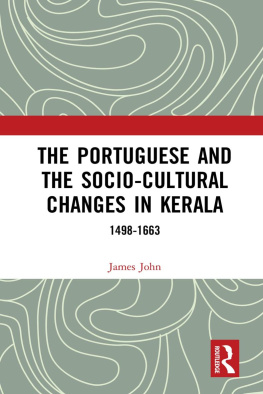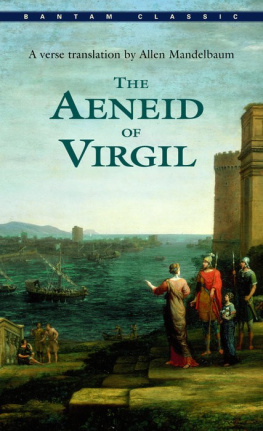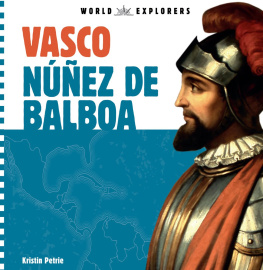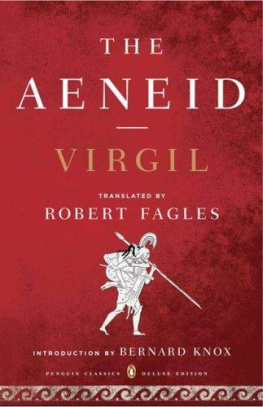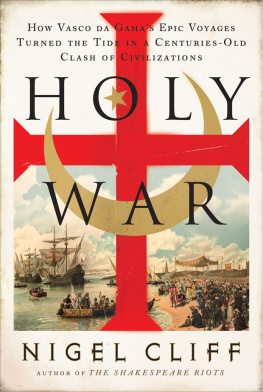de Camoes - The Lusiads
Here you can read online de Camoes - The Lusiads full text of the book (entire story) in english for free. Download pdf and epub, get meaning, cover and reviews about this ebook. year: 2010;2011, publisher: Penguin Group USA, Inc., genre: Art. Description of the work, (preface) as well as reviews are available. Best literature library LitArk.com created for fans of good reading and offers a wide selection of genres:
Romance novel
Science fiction
Adventure
Detective
Science
History
Home and family
Prose
Art
Politics
Computer
Non-fiction
Religion
Business
Children
Humor
Choose a favorite category and find really read worthwhile books. Enjoy immersion in the world of imagination, feel the emotions of the characters or learn something new for yourself, make an fascinating discovery.
The Lusiads: summary, description and annotation
We offer to read an annotation, description, summary or preface (depends on what the author of the book "The Lusiads" wrote himself). If you haven't found the necessary information about the book — write in the comments, we will try to find it.
Employing The Aeneid as a model and invoking the whole divine order of Olympus, The Lusiadsthe national epic of Portugalrecounts the ten-month voyage by which Vasco da Gama opened the seaway to India.
The Lusiads — read online for free the complete book (whole text) full work
Below is the text of the book, divided by pages. System saving the place of the last page read, allows you to conveniently read the book "The Lusiads" online for free, without having to search again every time where you left off. Put a bookmark, and you can go to the page where you finished reading at any time.
Font size:
Interval:
Bookmark:

THE LUSIADS
L UIS V AZ DE C AMES (in English, Camoens) was born about 1524, probably in Lisbon, into the lesser nobility. His family were related by marriage to Vasco da Gama, so Camoens had an early interest in the creation of the Portuguese empire and a knowledge of its dangers, as his father was shipwrecked and drowned off the coast of Goa. He went to university at Coimbra and received a thorough grounding in Latin, mythology and history, read some Italian literature and became conversant with Spanish. He returned to Lisbon in 1544 and frequented court and aristocratic circles, but an unfortunate love affair led to his banishment from the capital in 1546. He went to Ceuta as a common soldier in 1547, and it was here that his real involvement with the adventure of empire began, the reality of which was brought home by the loss of his right eye. A tougher, rougher man, he returned to Lisbon in 1549 and was imprisoned for nine months in 1552, following a street brawl. In May 1553 he sailed for India and wrote: I set out as one leaving this world for the next. After some years of soldiering and hardship he was posted in 1556 to Macau in China, but the hostility of the settlers there drove him back to Goa in 1561. He had long been working on The Lusiads and became anxious to return home and see it published. He set out in 1567 but did not reach Lisbon until 1570, to find the boy-king Sebastio on the throne. The Lusiads was published in 1572, but received little attention. Camoens fell ill in 1579, broken-hearted over the defeat of Sebastio in Africa. He wrote from his death-bed: All will see that so dear to me was my country that I was content to die not only in it but with it. He died in June 1580.
W ILLIAM C . A TKINSON (190292) was for forty years Stevenson Professor of Spanish at the University of Glasgow where he was also director of its Institute of Latin-American Studies, from the Institutes foundation in 1966 until his retirement in 1972. His publications include Spain A Brief History (1934), A History of Spain and Portugal (1960) and The Happy Captive (1977).
LUIS VAZ DE CAMES
(CAMOENS)
TRANSLATED BY
WILLIAM C . ATKINSON

PENGUIN BOOKS
PENGUIN BOOKS
Published by the Penguin Group
Penguin Books Ltd, 80 Strand, London WC2R 0RL, England
Penguin Putnam Inc., 375 Hudson Street, New York, New York 10014, USA
Penguin Books Australia Ltd, 250 Camberwell Road, Camberwell, Victoria 3124, Australia
Penguin Books Canada Ltd, 10 Alcorn Avenue, Toronto, Ontario, Canada M4V 3B2
Penguin Books India (P) Ltd, 11 Community Centre, Panchsheel Park, New Delhi 110 017, India
Penguin Books (NZ) Ltd, Cnr Rosedale and Airborne Roads, Albany, Auckland, New Zealand
Penguin Books (South Africa) (Pty) Ltd, 24 Sturdee Avenue, Rosebank 2196, South Africa
Penguin Books Ltd, Registered Offices: 80 Strand, London WC2R 0RL, England
www.penguin.com
This translation first published 1952
Copyright 1952 by William C. Atkinson
All rights reserved
Except in the United States of America, this book is sold subject to the condition that it shall not, by way of trade or otherwise, be lent, re-sold, hired out, or otherwise circulated without the publishers prior consent in any form of binding or cover other than that in which it is published and without a similar condition including this condition being imposed on the subsequent purchaser
ISBN: 9781101493458
To
ELSPETH MAUREEN
who kept the translator to it
C AMOENS poem, the national epic of Portugal, is the story of a people numbering then perhaps a million and a quarter who in the space of a century and a quarter spread over the waters of the globe, carried their flag and their faith from Brazil to Japan, and established not merely an empire but a new conception of empire based on mastery of the ocean routes. God gave the Portuguese a small country as cradle but all the world as their grave, wrote Antnio Vieira in the seventeenth century. If they temporarily exhausted themselves in the process, they left the world as seen from Europe a very different place, and the whole course of subsequent history bears the imprint. The Lusiads is more, however, than the mere narrative of that achievement: it is also an interpretation of the underlying greatness of those who achieved it, and as such the best possible introduction to Portugal and the Portuguese. Being conceived in essentially poetic terms, it may fittingly be prefaced by a brief account in prosaic chronological sequence of the more notable landmarks in the long heroic story.
It was an important differential factor in the Peninsula that, whereas Spain did not recover full possession of her territory from the Moslem invader until the fall of Granada in 1492, after a struggle lasting close on eight hundred years, the Reconquest to Portugal was the preoccupation of less than two centuries and was completed by 1267. Portuguese prowess at sea had already won its spurs in the extension of the fighting in its closing stages to the waters of the Atlantic; and the fact that in succeeding centuries the fight for survival was to be against Spain did not obscure the persisting threat to the faith from across the Strait.
With the infidel so close at hand, the crusades to the Holy Land had not engaged Portugal directly. Indirectly she benefited on occasion by the touching at her ports of valiant knights-errant from north-western Europe on their way to Palestine by sea, and English crusaders played a notable part in the taking of Lisbon from the Moslem in 1147. Some of these went no further: one, Gilbert of Hastings, became first Bishop of Lisbon. Crusading in the Peninsula was recognized by Rome to be fully as meritorious as crusading elsewhere, and such had been the fervour Portugal engendered in the process that even after the expulsion of the infidel she remained persuaded of her mission to continue the challenge and, in the name of the Church militant, to carry the war into Africa.
Here England comes into the picture once more. In 1385, 500 English archers in the pay of John of Gaunt did yeoman service on the field of Aljubarrota, which put an end to Spanish designs on Portugal for the next 200 years. In 1386 the Treaty of Windsor bound England to Portugal which enjoys thereby the status of our oldest ally for ever. And in 1387 Philippa of Lancaster, John of Gaunts daughter, married Joo I, the first of the House of Aviz, to become by him the mother of the most famous royal family in Portuguese history. It was this Anglo-Portuguese line of Aviz that formally launched Portugal on the high seas and blazed the trail of empire. All five sons took part, with their father, in the capture of Ceuta in 1415. This was the countrys first overseas expedition, that Philippa had blessed from her death-bed, and in her third son Henrique, known to English readers as Henry the Navigator, it stirred a vision which was never to forsake him thereafter.
Withdrawing from the Court, Henrique established at Lagos on the south coast a centre for maritime research and exploration on an ever-increasing scale, drawing to his employ captains, pilots, cartographers and scientists and dispatching annual expeditions of discovery. The Mediterranean was known already, and the north coast of Africa. In addressing himself to the Atlantic and the west coast Henrique was guided by a variety of motives, scientific, religious, diplomatic, commercial. He sought communication and if possible an alliance with the mysterious Prester John, ruler of a Christian Ethiopia; he sought new channels of trade for his country; he sought to discover, perhaps to annex and colonize, new lands; he sought to extend the Christian faith at the expense of Mohammedanism; and, ultimate objective of all, he sought a sea route to India and the East. There too, as in Ethiopia, there existed the possibility of Christian allies, in the St Thomass Christians so-called of the Malabar coast, and this crusaders vision of a grand strategy that would take the Mohammedan world in the rear was given official recognition in Papal bulls.
Font size:
Interval:
Bookmark:
Similar books «The Lusiads»
Look at similar books to The Lusiads. We have selected literature similar in name and meaning in the hope of providing readers with more options to find new, interesting, not yet read works.
Discussion, reviews of the book The Lusiads and just readers' own opinions. Leave your comments, write what you think about the work, its meaning or the main characters. Specify what exactly you liked and what you didn't like, and why you think so.



